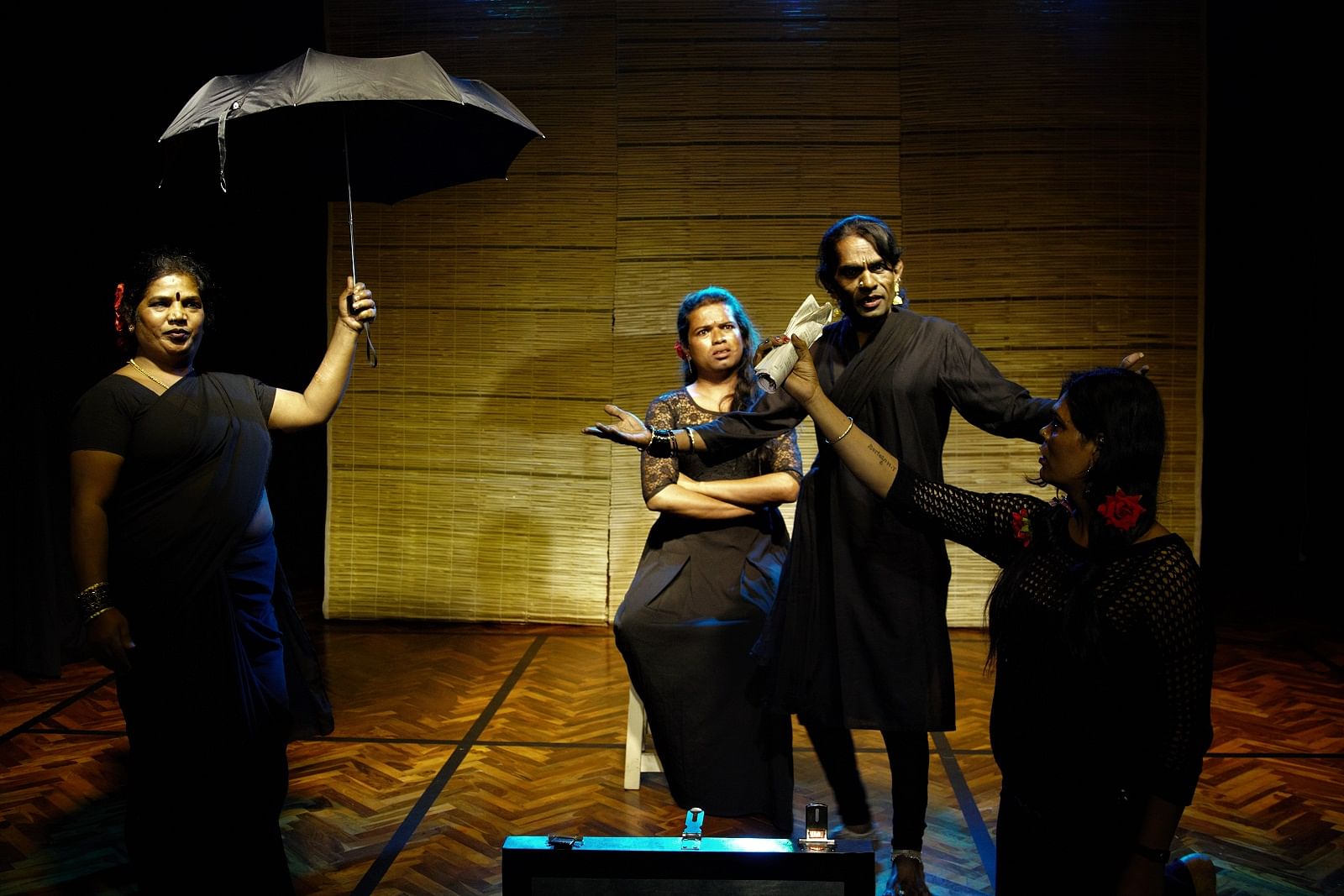
Over the last few years, LGBTQ-themed plays have burst into the Kannada theatre scene. Be ‘Mohanaswamy’ or ‘Ondu Preetiya Kathe’ – both adaptations from a Kannada novel (Vasudhendra) and a Marathi play (Vijay Tendulkar) respectively. Incidentally, both plays deal with homosexuality and follow the
conventional narrative structure.
Hence, a play like Nava is an ambitious attempt not only because of the content it presents but also because of the form it decides to do so in. The play served as the curtain-raiser of this year’s Rangashankara Theatre Festival, curated by The Sandbox Collective.
Written and directed by Sharanya Ramprakash of Akshayambara fame, the play is a devised performance, that is a work of collaboration between Ramprakash and the transwomen from Aravani Art Project. These nine urban transwomen take the centre stage to narrate their own stories through nine rasas of Indian aesthetics.
The nine boxes drawn on the stage floor serve as the figurative boundaries of rasas through which they attempt to contain their stories. But, neither stories nor rasas (that embody emotions) work that way, do they? The stories spill into each other, so do the emotions weaving a tapestry full of poignant moments. In these individual moments the play indeed triumphs. For example, in one of the stories, a group of sexworkers jump into a sewage-filled manhole, to escape from the cops. To be caught is to subject to a fate worse than the smell of sewage, which rubs off after a while. In this single scene, there was Veera ( courage), Bhayanaka (terror), Bheebhatsya (disgust). When one of them who takes a bath to get rid of the smell, there is Shantha (peace) rasa too. For a transwoman, courage isn’t measured in monumental tasks. The simple act of buying a bus ticket or even just existing defies boundaries and requires courage.
But, when a play is also advocating for justice for the people living in the fringes of the society, it is easy to fall into the trap of literality. At times, ‘Nava’ too tries to make its case, by appealing to the audience. Opening with Hasya (laughter) rasa, the object of laughter is no longer the people whom society mocks and berates with slurs like ‘Ombattu’, ‘Chakka’, but its us, the society. While we forget her dialogues fired at us immediately, the laugh will be the one that stays with us, reverberating inside our chest, even after leaving the theatre.